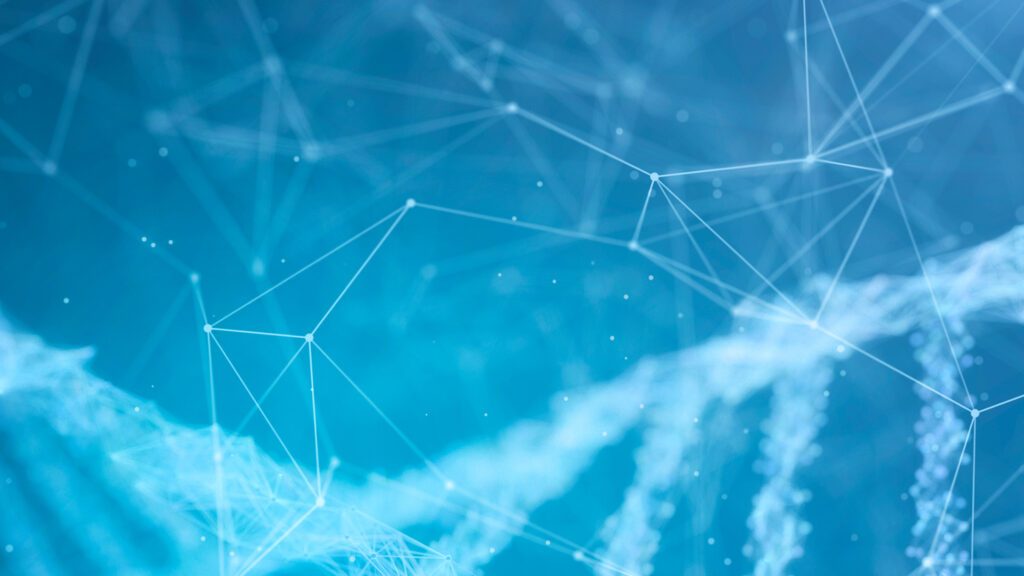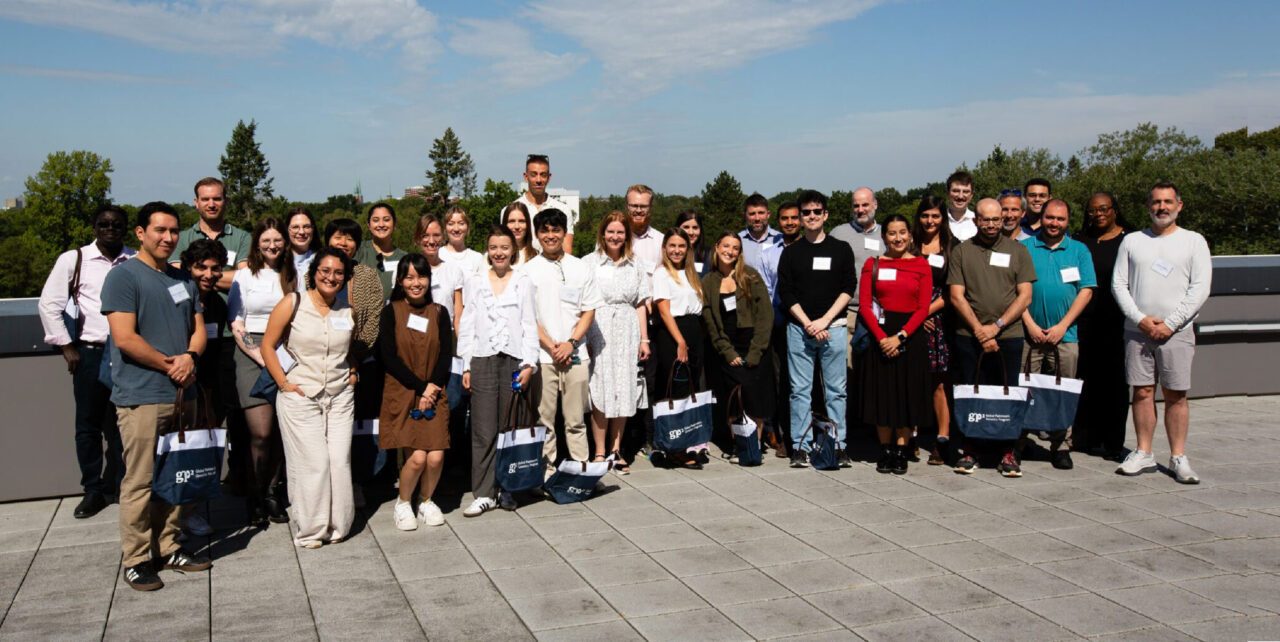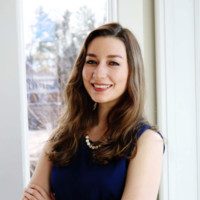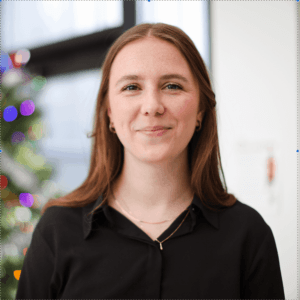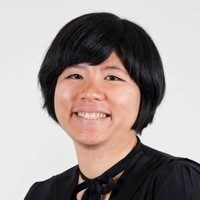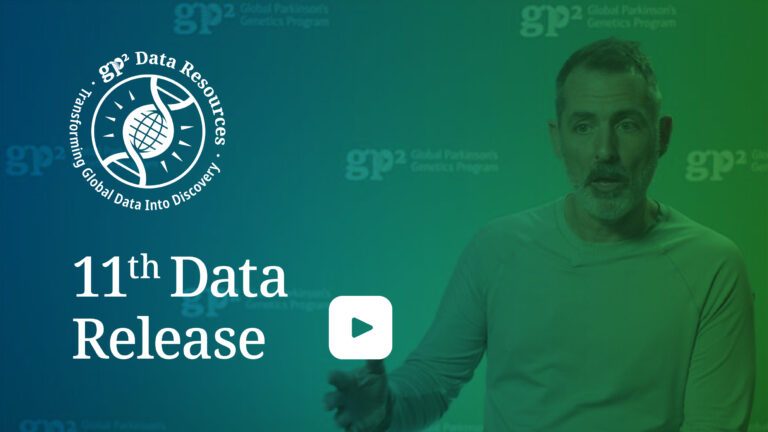The GP2 Hackathon 2025 was part of a broader GP2 Training Program, designed to foster hands-on learning, collaboration, and mentorship among emerging researchers. From August 27–29, 2025, 16 trainees gathered in Lübeck, Germany, for a dynamic three-day event hosted by Prof. Christine Klien at the University of Lübeck.
The hackathon combined intensive project work using the latest GP2 data with interactive training and networking activities. Several teams used the Verily Workbench to access GP2 datasets and run their analyses directly in a cloud-based environment.
Trainees also had the opportunity to network and receive mentorship from members of the GP2 leadership team, who were onsite for a concurrent meeting. These interactions sparked valuable conversations around career development, collaboration opportunities, and ways GP2 can continue supporting trainees in the future.
Global Participation
This year’s hackathon cohort included trainees from 13 countries across six continents, highlighting GP2’s commitment to inclusive and global research.
- North America: USA
- Africa: South Africa, Ghana, Algeria
- Latin America: Mexico, Chile, Brazil
- Asia: Malaysia, Armenia
- Europe: United Kingdom, Slovenia, Ukraine
- Oceania: Australia
 * The 2025 Hackathon trainees, project leads, and members of the GP2 Training and Networking WG
* The 2025 Hackathon trainees, project leads, and members of the GP2 Training and Networking WG
Project Overviews
Trainees were divided into four teams, each focused on a specific analysis project with support from an experienced mentor.
- Project 1: Led by Lara M. Lange, developed a LRRK2 Browsing Tool–a centralized, user-friendly interface for exploring genetic and functional data related to LRRK2 and its variants across Parkinson’s disease cohorts.
- Project 2: Led by Mary Makarious, evaluated polygenic risk scores (PRS) using GP2’s recent European meta-GWAS summary statistics, comparing performance to earlier models.
- Project 3: Led by Hampton Leonard, explored cell-type-specific enrichment of genetic signals to identify which brain cell types show the strongest links to PD-associated variants.
- Project 4: Led by Zih-Hua Fang, focused on genome-wide detection of repeat expansions using ExpansionHunter Denovo, aiming to identify known or novel repeat expansions that may explain unresolved GWAS loci.
Testimonies
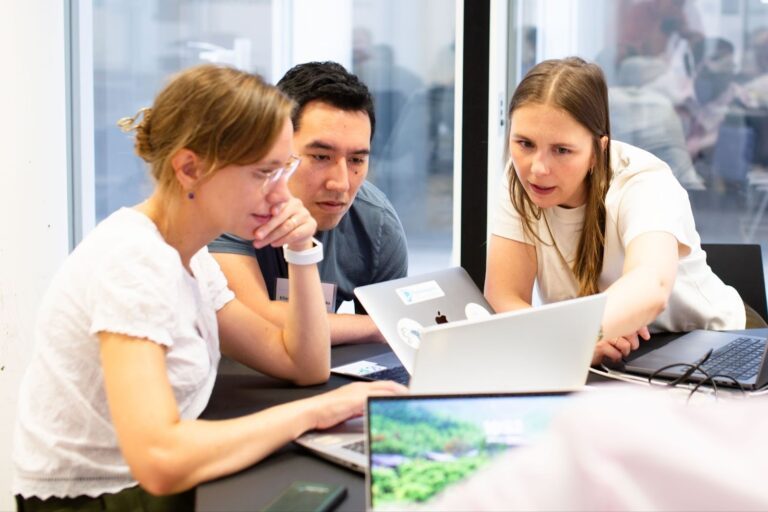
“Coming from a clinical background, the Hackathon had a strong impact on my skill development. It helped me gain experience in planning, task distribution, team organization, and also introduced bioinformatics tools for data extraction and variant analysis.”
– Elías Fernandez-Toledo, GP2 Trainee Representative for Latin America [Hackathon Group 1]
* Left to right: Vesna van Midden, GP2 trainee; Elías Fernandez-Toledo, GP2 trainee; Lara Lange, project lead of group 1
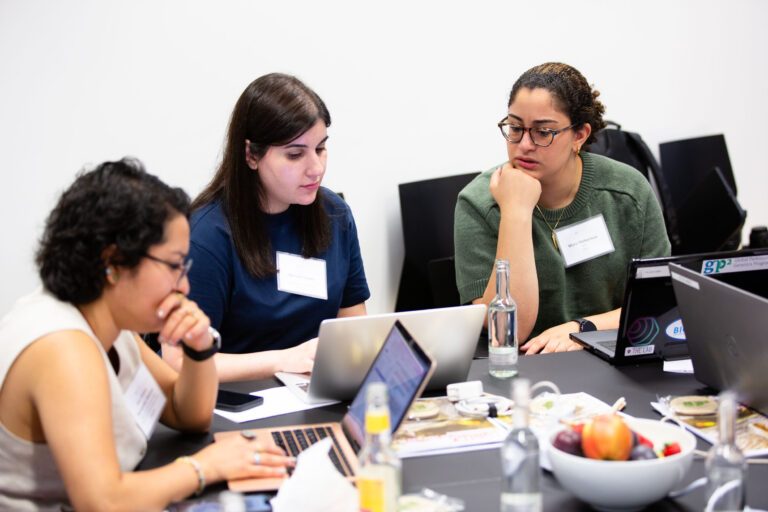
“The opportunity to talk with other trainees gave me new perspectives on how to present our findings effectively. Using Verily Workbench, I learned how to troubleshoot bugs and run scripts more efficiently.”
– Lucas Faria Costa, GP2 Trainee Representative for Latin America [Hackathon Group 2]
* Left to right: Ana Jimena Hernández-Medrano, GP2 trainee; Mariam Isayan, GP2 trainee; Mary Makarious, project lead of group 2
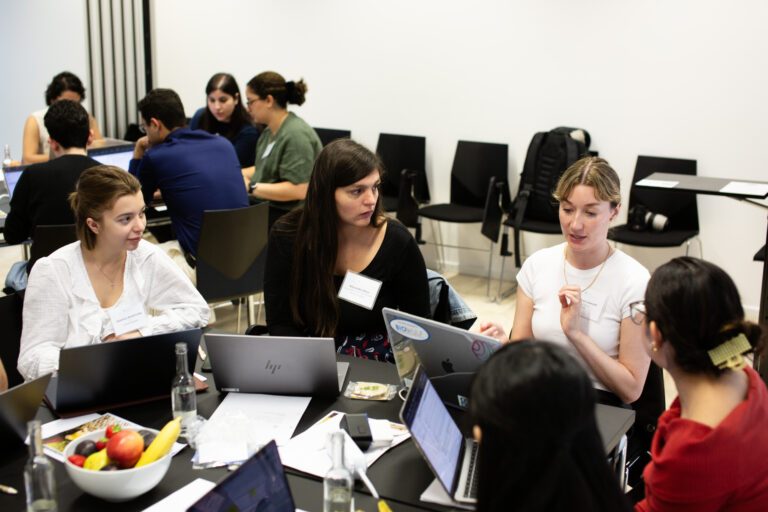
“The Hackathon helped me develop skills in functional genomics for my future career. It’s a great fit!”
– Alexandra Zirra, GP2 trainee representative for Europe [Hackathon Group 3]
* Left to right: Solomiia Bandrivska, GP2 trainee; Alexandra Zirra, GP2 trainee; Hampton Leonard, project lead of group 3; Paula Reyes, GP2 trainee
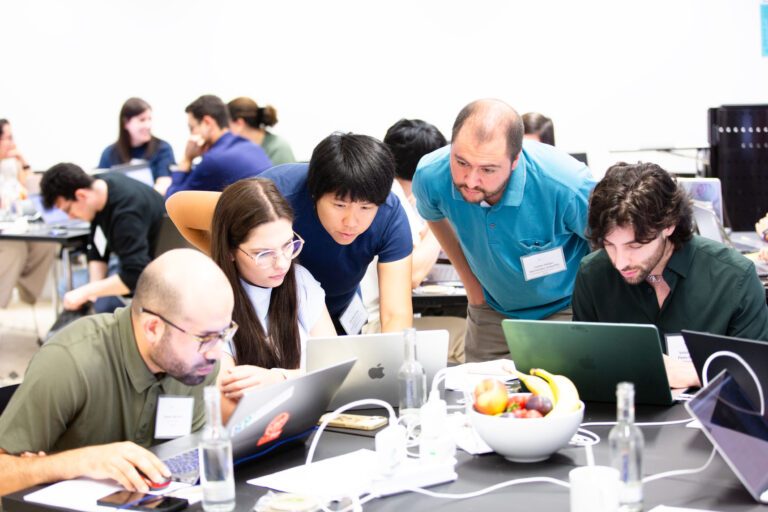
“I have never worked with WGS before, so it was a good learning experience. I think the presentations by Mary Makarious and Spencer Grant on best practices for publishing papers, and an introduction to publicly available datasets, were good as well because they gave us additional training that is relevant to the analysis we do.”
– Kathryn Step, GP2 trainee representative for Africa [Hackathon Group 4]
* Left to right: Yasser Mecheri, GP2 trainee; Kathryn Step, GP2 trainee, Zih-Hua Fang, GP2 project lead of group 4; Carlos Hernández, GP2 trainee; Victor Flores Ocampo, GP2 trainee

The speed networking activity was a great opportunity for trainees to connect and break the ice with the OC members. It created a safe space for discussion on the future of GP2’s training opportunities and helped us understand how we can sustain momentum and continue expanding opportunities within the trainee network.”
– Charlotte Andrews, GP2 Training and Networking WG coordinator
* Speed networking session, involving GP2 trainees, project leads, and members of the GP2 leadership team
Looking Ahead
This hackathon helped launch several promising projects that build on recent GP2 publications and datasets. While the analyses are ongoing, the collaborations sparked in Lübeck are expected to continue in the coming months.
We plan to host additional hackathons in the near future. If you’re interested in participating or learning more, please don’t hesitate to reach out!
 * GP2 Training Program 2025: GP2 trainees, Hackathon project leads, members of the Training and Networking WG, and members of GP2 leadership
* GP2 Training Program 2025: GP2 trainees, Hackathon project leads, members of the Training and Networking WG, and members of GP2 leadership
* All pictures are credited to Christoph Westenberger, GP2 Monogenic Network member.
